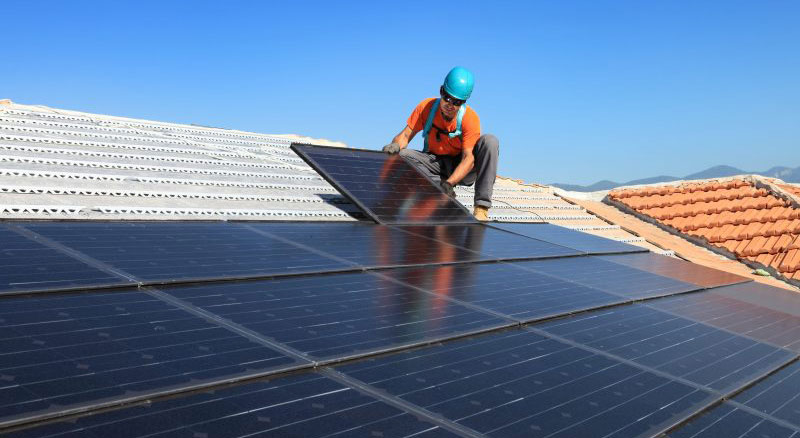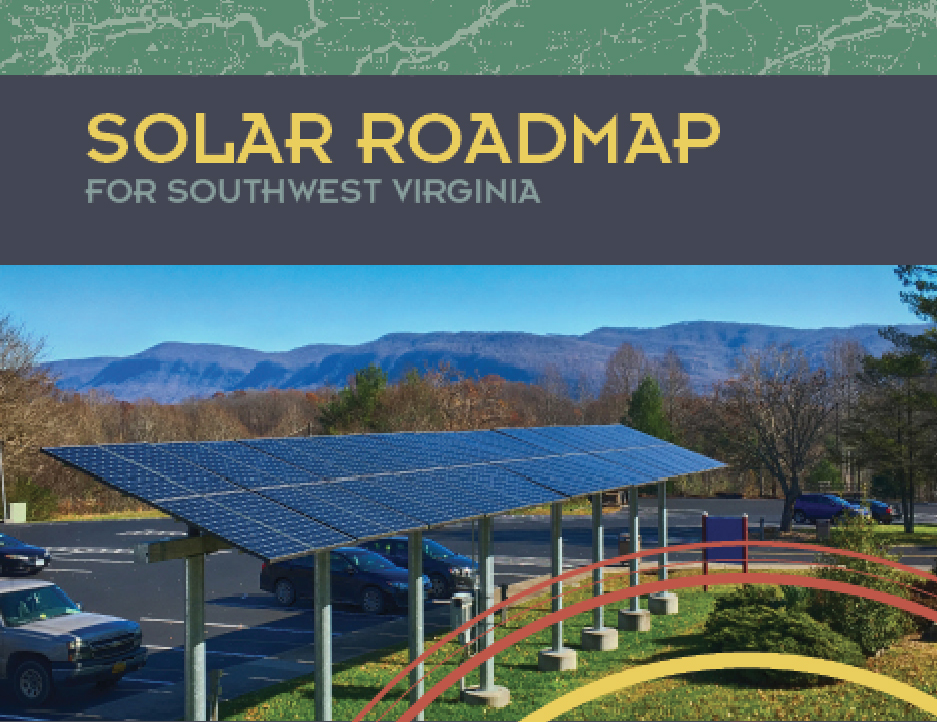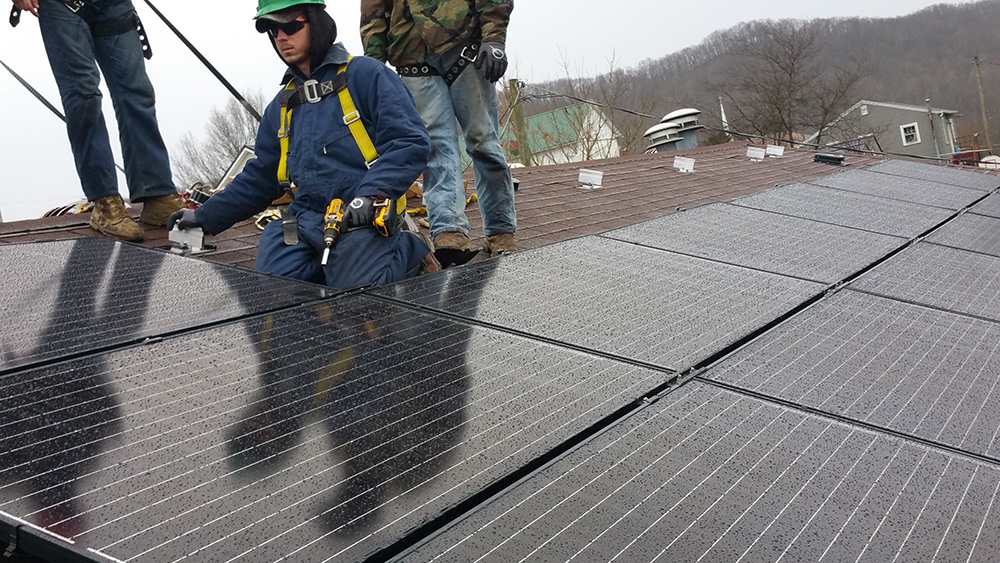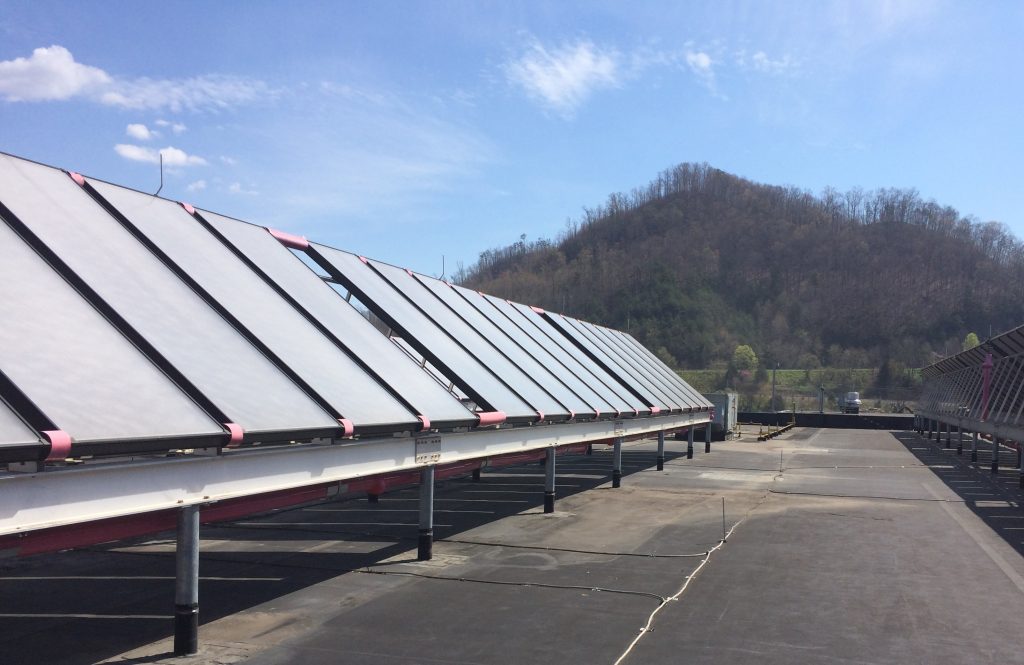Posts Tagged ‘Solar’
TVA’s “New Pricing Paradigm” is a bad deal for communities and clean energy
Appalachian Voices attended TVA’s February board meeting to oppose rate reforms that would burden on low-income residents and thwart future investments in clean energy.
Read MoreSouthwest Virginia High School Robotics Team Shines with Solar
Ridgeview High School’s robotics team “Squatch Watch” won several awards using solar-powered robots.
Read MoreTrump Announces Tariffs on Solar Panels
President Trump imposed a four-year, 30 percent tariff on imported solar panels, in a move widely criticized by solar industry professionals.
Read MoreAppalachian solar jobs on the line in Trump’s Suniva decision
Guest blogger Kyle Pennell of PowerScout takes a look at President Trump’s upcoming January 26 ruling regarding tariffs on solar panel imports and the potential impact his decision could have either way.
Read MoreA roadmap to boosting solar in Southwest Virginia
Last week, the Solar Workgroup of Southwest Virginia released an outline for bringing a just, sustainable energy economy to the coalfield region.
Read MoreGoing solar in the coalfields of Southwest Virginia
CONTACT: Adam Wells, Appalachian Voices, New Economy Program Manager, 276-679-1691, adam@appvoices.org Matt Wasson, Appalachian Voices, Director of Programs, 828-262-1500, matt@appvoices.org Cat McCue, Director of Communications, 434-293-6373, cat@appvoices.org Wise County, Va. — A group of local leaders from far Southwest Virginia has crafted a nuts-and-bolts “how-to” plan for spurring growth of the solar industry in the…
Read MoreSeeking Opportunities in Solar Energy
Solar energy is on the rise across the nation. According to The Solar Foundation, a nonprofit organization dedicated to advancing solar energy, “one out of every 50 new jobs added in the United States in 2016 was created by the solar industry.” Restrictive policies and lower population density, however, have led to solar power being…
Read MoreFormer Coal Company Town Integrates Energy Efficiency and Solar
By Dan Radmacher Powering a coal museum with solar panels is the kind of news story that attracts attention, as the city of Benham, Ky., discovered. “It’s put us on the map internationally,” says former Benham Power Board chairman Roy Silver of the decision to install solar panels on top of the Kentucky Coal Museum,…
Read MoreUnique Solar Applications
By Otto Solberg Although solar fields generate large amounts of renewable energy, the ground underneath is commonly planted with turf grasses that do not effectively drain rainwater and require carbon-wasting maintenance. These innovative applications of solar energy are minimizing those negative impacts and creating more benefits for incorporating solar. Sun-Raised Sheep To maintain the land…
Read MoreSolarize Wise (Va.) running strong with Sigora Solar on board
Contact: Lydia Graves, Solarize Wise Program Coordinator, Lydia@appvoices.org, (276) 679-1691 NOTE TO EDITORS: These photos (here and here) are available to download and print. Caption: Solar thermal hot water system on the roof of the Duffield Regional Jail in Scott County, Va. Photo credit: Christine Gyovai. In the last several months, more than 45 people…
Read More




